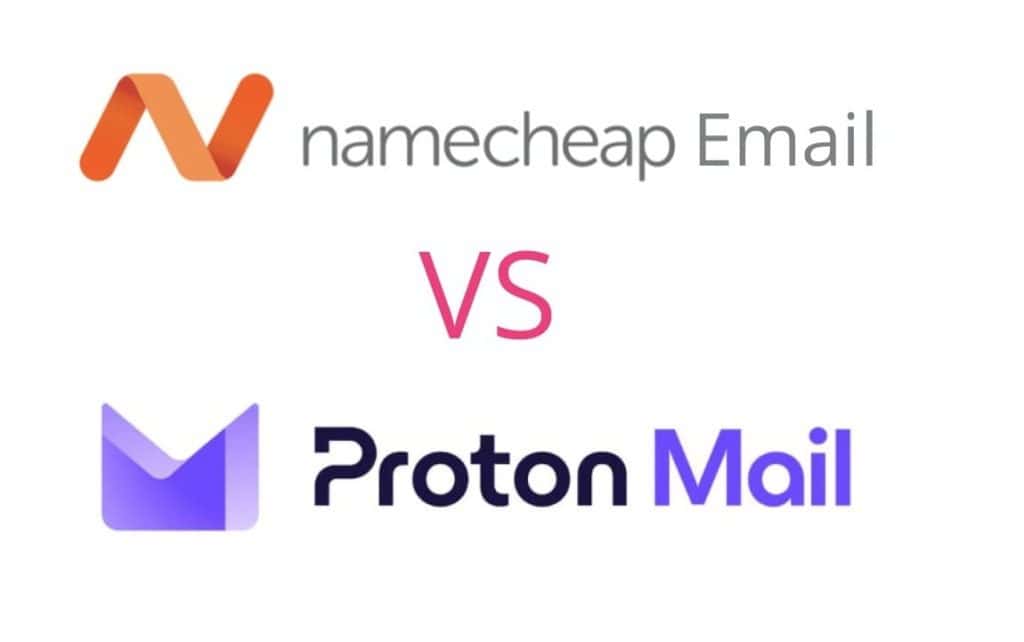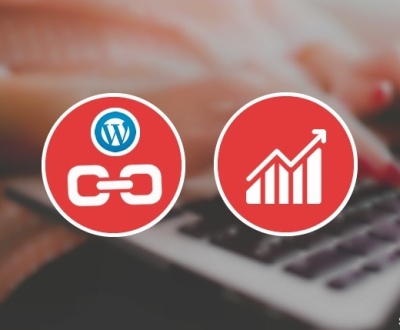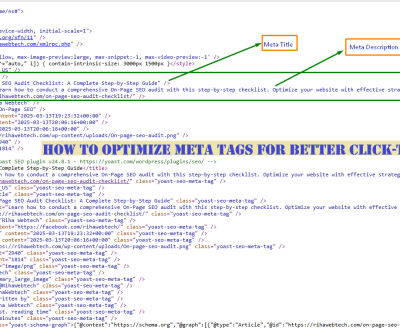Namecheap Email Vs Protonmail : Which is the Best Email Service?
Namecheap email vs Protonmail are both popular email providers, but they differ significantly in their features and security measures. Namecheap email is a webmail service powered by open-xchange, which includes features such as calendar, contacts, and storage.
On the other hand, Protonmail is a privacy-focused email service that offers end-to-end encryption, two-factor authentication, and self-destructing messages. Protonmail is entirely open source, which means its transparency can be thoroughly confirmed. Additionally, Protonmail stores all user data in Switzerland making it subject to swiss privacy laws, which are considered some of the strongest in the world.
In contrast, Namecheap email’s geolocation of data transverses server locations and may subject information to different jurisdictions.

Security Features of Namecheap email and Protonmail
Ensuring the security of emails is crucial, especially in this era of cyber threats. In this section, we will explore the security features of namecheap email and protonmail and see how they compare:
Encryption
Namecheap email and protonmail both offer end-to-end encryption to secure emails. This encryption ensures that only the sender and the recipient can read the message, and nobody else can access it.
Both email services also use industry-standard encryption protocols, such as tls, pgp, and aes, to keep emails safe during transmission.
Two Factor Authentication
Two factor authentication (2fa) is an additional layer of authentication after entering your username and password. Namecheap email and protonmail both offer 2fa to secure your email accounts.
These services allow you to enable 2fa and receive a unique code on your mobile device, which you must enter to access your email account. This feature makes it difficult for hackers to access your account, even if they have your username and password.
Open Source Code
Protonmail is based on open-source code, which allows anyone to examine and audit the service’s source code. The open-source code ensures transparency and provides assurance that no backdoor or vulnerability exists.
Namecheap email, on the other hand, does not offer open-source code.
Privacy Policies
Both namecheap email and protonmail have strict privacy policies that protect users’ data.
Protonmail’s privacy policy states that they do not collect any user data and that all emails are encrypted. Furthermore, they do not share user data with third parties or advertisers.
Namecheap email’s privacy policy also claims that they do not sell or share personal information. However, they do collect data like name, email address, and billing information for billing purposes.
Additional Security Features
Besides the standard features, both namecheap email and protonmail offer additional security features to protect users’ email accounts.
Namecheap email’s additional features include:
- Anti-virus protection to detect and remove viruses and malware
- Spam filtering to block unwanted emails
- Access controls to limit unauthorized access to email accounts
- Email forwarding to forward emails to other email accounts
Protonmail’s additional features include:
- Self-destructing emails that delete themselves after a specified period
- Ability to send password-protected emails for an extra layer of security
- Address verification that ensures that emails are sent only to verified email addresses.
Overall, both namecheap email and protonmail offer robust security features to keep your email accounts secure. While namecheap email offers additional protection against malware and spam, protonmail’s open-source code and strict privacy policy may appeal to users who value transparency and security.
User Interface of Namecheap email and Protonmail
Design
When it comes to email services, user interface design plays a pivotal role because it can make or break a user’s experience. Namecheap and protonmail both offer technically sound services, but there are differences. Here is a brief explanation of the design of both websites.
- Namecheap email’s user interface is straight forward and simple, with an intuitive design. It has a standard inbox with a left side menu with folders, such as the spam folder and the trash folder, and an integrated task manager, calendar, and notes. Additionally, you can customize the look of your inbox with different themes.
- Protonmail has a more modern and sleek design, with a strong emphasis on privacy. Protonmail’s aesthetics are minimalist and straightforward, and the interface is easy to navigate. Protonmail offers a secure email experience that ensures that your communications are safe from prying eyes. The sidebar on the left gives you access to folders and other features that you can customize.
User-Friendliness
User-friendliness is another vital aspect to consider when choosing an email service provider. Both namecheap email and protonmail have different user-friendly features that you may enjoy or not. Let’s see how they compare:
- Namecheap email is incredibly user-friendly, with a user-friendly interface that anyone can navigate. Users can easily manage their emails using drag-and-drop features, create folders, and enjoy a robust search feature that helps them locate items easily.
- Similarly, protonmail is also user-friendly, with an interface that makes it easy for users to send and receive secure emails. Protonmail’s built-in encryption technology makes it impossible for anyone to eavesdrop or intercept communications, making it highly secure. However, users who wish to further customize their mailbox by selecting alternative fonts, backgrounds, or colors may be out of luck.
Customizable Features
The customizable features on an email service provider give users the opportunity to tailor their email experience to their liking. Here’s a brief rundown of namecheap email and protonmail’s customizable features:
- One of the highlights of namecheap email is that users can customize their email signatures with their preferred style, font, color, and element placement. Users can also organize their inbox with filters or create custom rules for incoming messages. Furthermore, namecheap email offers a feature called “easy mail forwarding,” which makes it simple to send and receive emails from other accounts.
- Protonmail has excellent customizability around security and privacy. Users can customize end-to-end encryption, two-factor authentication, and password management. This customization ensures that communications remain secure and that the user’s identity is not compromised. Additionally, users can customize labels, folders, and filters to organize their inbox further.
Both namecheap email and protonmail have pros and cons in terms of design, user-friendliness and customizable features. Depending on your needs and preferences, you may choose one which suits you better.
Pricing
Namecheap email and protonmail are two popular email service providers in the market today. Is a significant factor when choosing an email service provider. This section will discuss the plans and pricing, value for money, and user perks of namecheap email and protonmail.
Plans And Pricing
Namecheap email offers two plans: private email and business email. The private email plan starts at $0. 99 per month, and the business email plan starts at $3. 88 per month. Both plans offer unlimited email accounts, webmail, and basic imap/pop.
The business email plan offers additional features like microsoft exchange, microsoft outlook compatibility, and mobile sync for contacts and calendars.
Protonmail offers three plans: free, plus, and visionary. The free plan is free, and the plus plan starts at $5 per month. The visionary plan starts at $30 per month. All plans offer end-to-end encryption, custom domains, and no ads.
The plus and visionary plans offer more storage, more email aliases, and the ability to send encrypted messages to external recipients.
Value For Money
Namecheap email’s private email and business email plans offer excellent value for money. The plans are inexpensive, and they provide a decent set of features. The business email plan’s additional microsoft exchange and outlook compatibility make it a great choice for businesses that require advanced email features.
Protonmail’s free plan offers amazing value for money. It is entirely free, and it provides end-to-end encryption, custom domains, and no ads. The plus and visionary plans are expensive, but they offer top-of-the-line security features. They are a great option for businesses that deal with sensitive data.
User Perks
Namecheap email’s private email and business email plans offer easy integration with namecheap’s web hosting services. They also provide a simple and easy-to-use web interface. The business email plan offers mobile sync for contacts and calendars.
Protonmail offers excellent security features like end-to-end encryption and zero-access encryption. The web interface is intuitive and easy to use. The plus and visionary plans offer more email aliases, more storage, and the ability to send encrypted messages to external recipients.
Namecheap email and protonmail are both great email service providers. While namecheap email is less expensive and offers essential features for businesses, protonmail excels in advanced security features. Ultimately, the choice between namecheap email and protonmail depends on your budget and the level of security you require.
Customer Support System
Namecheap Email Vs Protonmail: Customer Support System
When it comes to choosing an email service provider, one of the factors that should be considered is the quality of the customer support system they offer. In this post, we will compare namecheap email and protonmail on their support channels, availability, and quality of support.
Support Channels
Both namecheap email and protonmail offer a range of support channels to assist customers. However, the number of support channels available for namecheap email is more extensive than protonmail.
Support channels for namecheap email:
- Email support
- Live chat support
- Knowledgebase
Support channels for protonmail:
- Email support
- Faq page
- Community forums
Availability
When customers encounter issues or have questions, they expect quick and responsive support. Namecheap email and protonmail offer different availability options for their support channels.
Availability for namecheap email:
- Email support available 24/7
- Live chat support available monday-friday 6: 00 am – 5:00 pm est
Availability for protonmail:
- Email support available 24/7
- Faq page and community forums available 24/7
Quality Of Support
While the availability of support channels is essential, the quality of customer support is even more critical. Here’s how namecheap email and protonmail compare on the quality of support:
Quality of support for namecheap email:
- Email support and live chat support are both highly responsive and helpful.
- The knowledge base is comprehensive and easy to navigate.
Quality of support for protonmail:
- Email support is highly responsive, with an average response time of less than 24 hours.
- The faq page and community forums are helpful and informative.
Both namecheap email and protonmail offer excellent support systems. However, namecheap email has more extensive support channels, and their live chat support is available during business hours, making it a better option for those who require immediate support. Protonmail, on the other hand, offers excellent email support with an average response time of less than 24 hours, making them a good choice for those who can wait for a response.
Ultimately, the choice between these two email service providers depends on your specific needs and priorities.
Accessibility
Namecheap Email Vs Protonmail: Accessibility
When it comes to email services, accessibility is one of the most important factors that users consider. After all, what good is an email service if you can’t access it whenever and wherever you need it? In this section, we’ll compare namecheap email and protonmail in terms of devices, compatibility, and integration with other apps.
Devices
Namecheap email and protonmail can both be accessed on a variety of devices, including:
- Desktop computers (windows and mac)
- Mobile phones (ios and android)
Compatibility
Compatibility is another crucial factor to consider when choosing an email service provider. Here’s how namecheap email and protonmail stack up:
Namecheap email:
- Compatible with all major email clients (e.g., gmail, outlook)
- Supports imap protocol
- Allows for custom email configurations
Protonmail:
- Can only be accessed through its webmail interface or mobile app
- Does not support imap protocol
- Encryption prevents compatibility with some email clients
Integration With Other Apps
Integrating your email account with other applications can be a game-changer when it comes to productivity. Here’s what you need to know about integrating namecheap email and protonmail with other apps:
Namecheap email:
- Can be easily integrated with popular productivity tools like google drive and dropbox
- Offers a calendar function that can be synced with other apps (e.g., apple ical)
- Supports integration with third-party email marketing tools like mailchimp
Protonmail:
- Does not offer any integrations with other apps or services
- Lacks a calendar function, though protonmail bridge allows for the use of external calendars
While both namecheap email and protonmail offer excellent security and privacy features, namecheap email is undoubtedly the superior option when it comes to accessibility, compatibility, and integrations. Its support for third-party email clients, custom configurations, and app integrations makes it a much more versatile option for users who need to access their email from a variety of devices and productivity tools.
Performance
Namecheap Email Vs Protonmail: Performance
When it comes to choosing between namecheap email and protonmail, performance is a major factor to consider. In this section, we’ll compare their speed, reliability, and downtime to help you make an informed decision.
Speed
Both namecheap email and protonmail claim to offer fast email services, but there are differences in their speed:
- Namecheap email has an average load time of 3.63 seconds, while protonmail takes 4.5 seconds to load.
- Namecheap email uses imap and pop3 to send and receive emails, both of which are known for their fast speed.
- Protonmail uses end-to-end encryption, which adds an extra layer of security, but slows down the speed of email transmission.
Reliability
Email reliability is all about whether the service is dependable enough to deliver messages without failure. Here’s how namecheap email and protonmail compare:
- Namecheap email has a 99.9% uptime guarantee, which means their services are available almost all the time.
- Protonmail has a similar guarantee of 99.95%, which is slightly better than namecheap email.
- Namecheap email provides additional security features, such as spam protection and virus scanning, ensuring that emails are received without any malicious content.
Downtime
Downtime is the period when the service is unavailable due to maintenance or technical issues. Here’s how namecheap email and protonmail stack up against each other in this area:
- Namecheap email has no significant downtime issues, and any maintenance activities are communicated in advance
- Protonmail has experienced some downtime issues in the past, but they were promptly fixed.
Choosing between namecheap email and protonmail is not an easy decision. In terms of speed, reliability, and downtime, both email services have their own pros and cons. Ultimately, it comes down to your personal preference as to which one suits your needs the best.
User Control
Namecheap Email Vs Protonmail: User Control
When it comes to email, users always seek services that offer greater control over their accounts while ensuring data privacy and security. Two of the most popular email services currently available are namecheap email and protonmail. Both services offer unique features and benefits tailored to their users’ needs particularly when it comes to user control.
We will explore the user-control aspect of these two email services.
Email Management
Email management is a crucial element in every email service. Namecheap email offers an easy-to-navigate interface for users to manage their email accounts. The platform comes with powerful tools and features that allow users to manage their inboxes efficiently. With namecheap email, users can categorize their emails, set up folders, adjust the user interface and even merge multiple accounts into one.
On the other hand, protonmail also provides excellent email management capabilities. It provides a simple and intuitive interface for users to manage their emails effectively. Users can easily label and organize their emails based on their specific requirements, ensuring a clean and uncluttered inbox.
Filtering Options
Filters are essential for keeping an inbox organized and streamlined. Namecheap email offers advanced filtering options for users. These options include filters based on sender, recipient, time period, and subject. Users can easily create, customize and manage their filters, giving them greater control over their emails.
Protonmail also has significant filtering options, but not as advanced as namecheap email. Users can create custom filters based on sender, recipient, subject, and other criteria, but they cannot combine filters for complex rules.
Spam Protection
Spam emails are a significant challenge for users. Namecheap email provides a reliable spam filter that detects and removes unwanted emails from the inbox. The platform uses advanced algorithms to detect spam and send it to the spam folder automatically.
Users can adjust the sensitivity of the spam filter according to their requirements. Protonmail, on the other hand, seeks to ensure that their users never receive spam in the first place. The service uses end-to-end encryption and dmarc/spf/dkim verification to block spam incoming emails before they reach the user’s inbox.
Both namecheap email and protonmail offer robust user control features and advanced functionality that makes email usage convenient and secure. Whether you prefer namecheap email’s advanced filtering options or protonmail’s reliable spam protection and encryption features, both services offer a comprehensive experience for users.
Reputation
Namecheap email and protonmail are both popular email services that offer various features and functionalities. However, their reputation is what sets them apart. In this section, we’ll discuss the reviews, ratings, and user feedback of both services.
Reviews
Namecheap email has received mixed reviews from its users. While some claim it to be a reliable service with a user-friendly interface, others have reported issues with its spam filters and occasional downtime.
On the other hand, protonmail has received overwhelmingly positive reviews from its users. It is considered a secure and private email service that prioritizes its users’ safety over everything else.
Ratings
When it comes to ratings, namecheap email has an average rating of 3. 5 stars out of 5, with over 100 reviews on trustpilot. Protonmail, on the other hand, has an excellent rating of 4. 6 stars out of 5, with more than 5,000 reviews on trustpilot.
User Feedback
User feedback is crucial in determining the quality and popularity of a service. In the case of namecheap email, users have appreciated its affordable pricing plans and user-friendly interface. However, some have reported occasional glitches and issues with its spam filters.
On the contrary, protonmail users have praised its advanced security measures, private encryption, and seamless ui. Users have reported that protonmail provides a safe and secure way of communicating over email.
While both namecheap email and protonmail offer various features, protonmail’s reputation stands out. Its consistently high ratings, positive reviews, and user feedback make it a top contender for a secure email service.
Frequently Asked Questions For Namecheap Email Vs Protonmail
What Is Namecheap Email And Protonmail?
Namecheap email is an email built exclusively for namecheap customers, while protonmail is a secure email service with end-to-end encryption.
Is Namecheap Email Secure?
Namecheap email offers basic security such as two-factor authentication, anti-virus and anti-spam protection, and ssl/tls encryption, making it a secure email service provider.
What Is The Pricing For Namecheap Email And Protonmail?
Namecheap email pricing starts at $0. 99/month and protonmail pricing starts at $5/month, both offering different plans with varying features.
How Does Protonmail Differ From Namecheap Email?
Protonmail offers end-to-end encryption, anonymous sign-up and no logging of user data while namecheap email provides basic features and is exclusive to namecheap customers.
Does Namecheap Email Come With Customer Support?
Namecheap email offers 24/7 customer support via email and live chat, ensuring that any issues are resolved quickly and efficiently.
Conclusion
After analyzing both namecheap email and protonmail, it is clear that each service has its unique set of advantages and disadvantages. While namecheap email is perfect for those who need an affordable and reliable email service that comes with a number of security features, protonmail is an excellent option for those who desire an end-to-end encrypted email solution and are willing to pay more for the added protection.
Ultimately, the choice between these two services will depend on your individual needs and priorities. So, if you value email privacy over convenience, protonmail may be the better option for you. On the other hand, if you prioritize affordability and ease of use, namecheap email may be a better fit.
Regardless of your choice, both namecheap email and protonmail are excellent email services that offer reliable and secure email communication options.
Related Post:
Top 5 Best Email Hosting for Small Business
Namecheap Email Vs Google Workspace: The Ultimate Comparison.
About us and this blog
We are a digital marketing company with a focus on helping our customers achieve great results across several key areas.
Request a free quote
We offer professional SEO services that help websites increase their organic search score drastically in order to compete for the highest rankings even when it comes to highly competitive keywords.
Subscribe to our newsletter!
More from our blog
See all postsRecent Posts
- How to Add an Internal Link in WordPress April 11, 2025
- How to Optimize Meta Tags for Better Click-Through Rates (CTR): A Comprehensive Guide April 11, 2025
- On-Page SEO Audit Checklist: A Complete Step-by-Step Guide March 13, 2025








